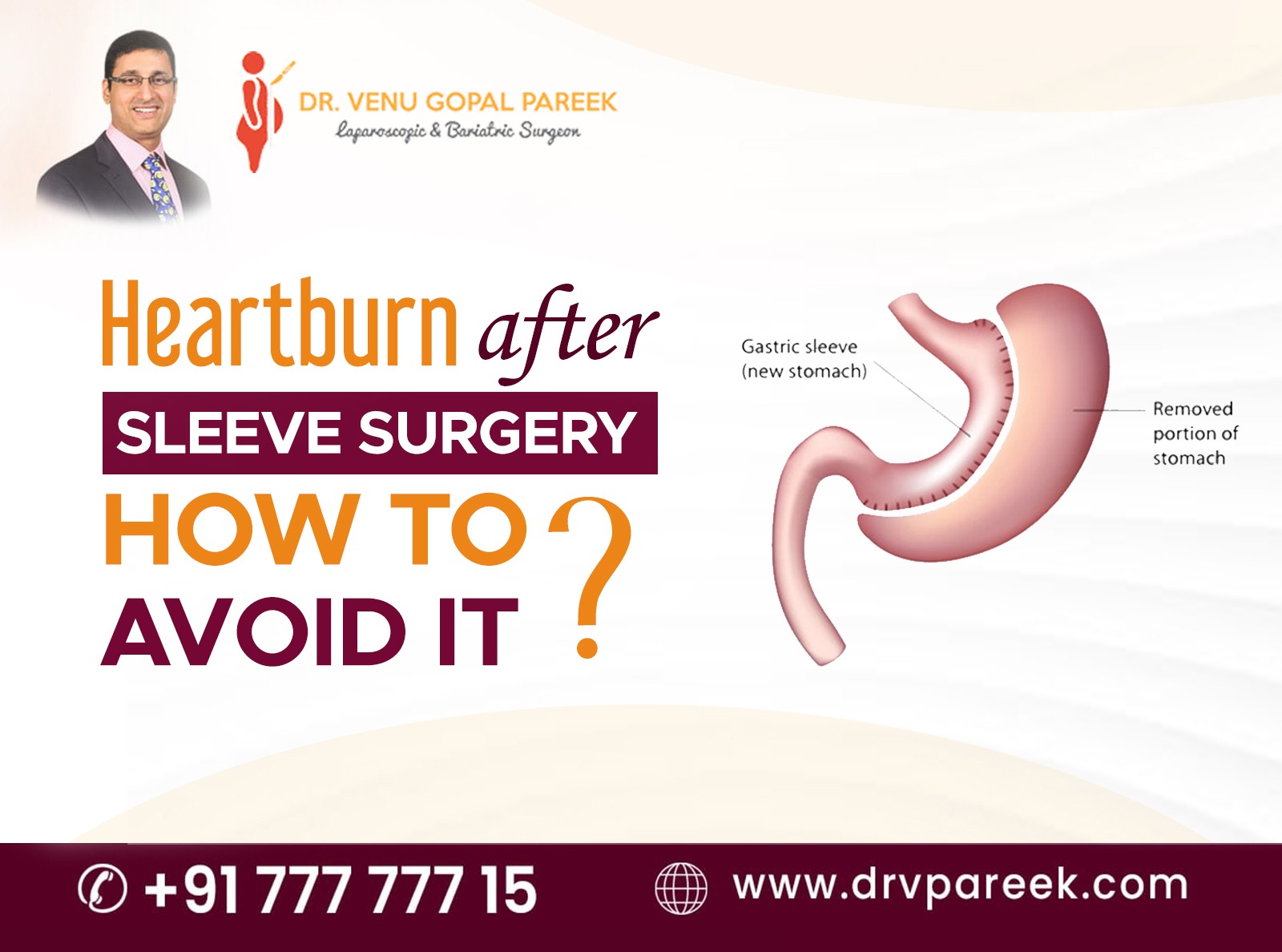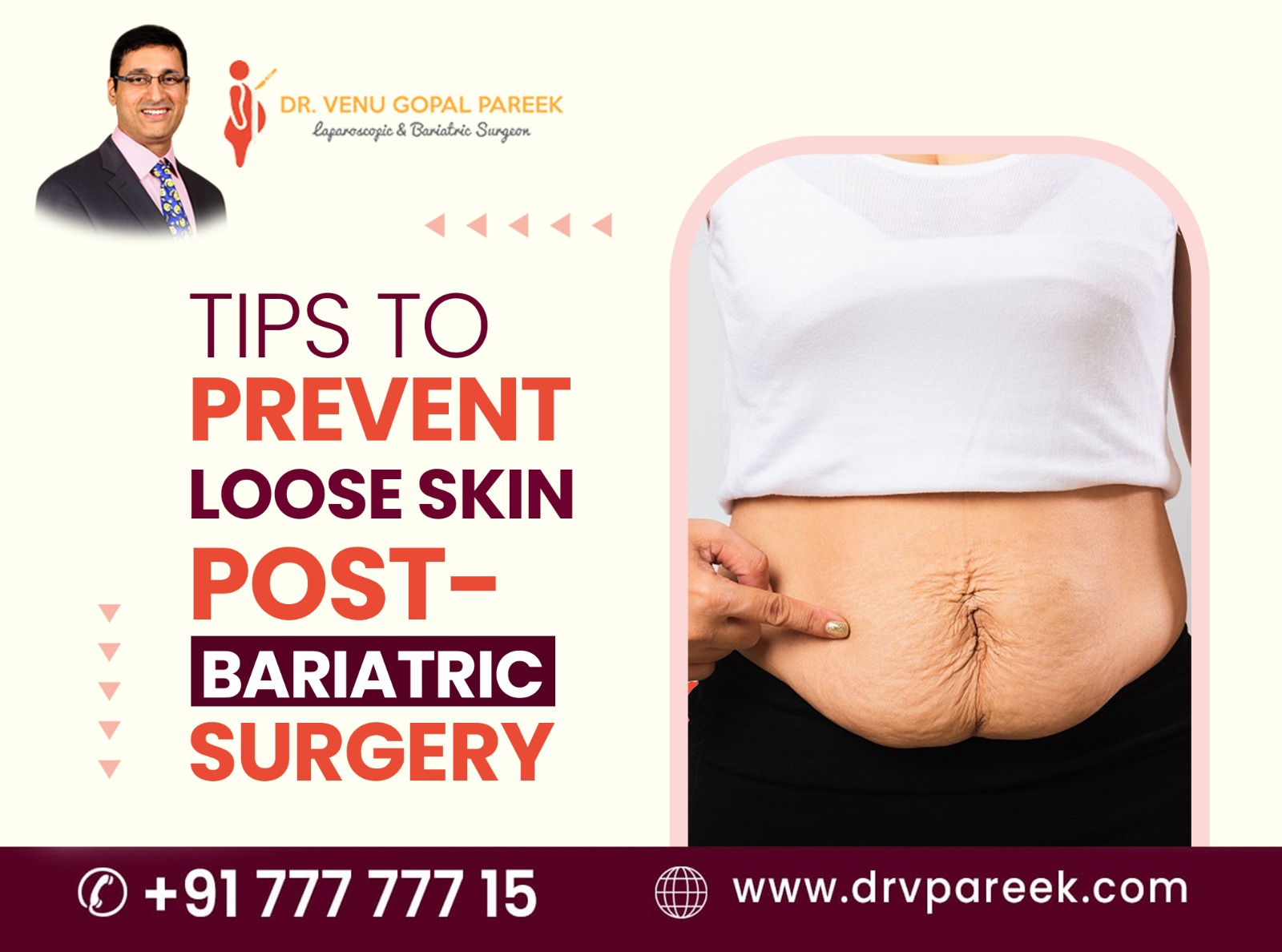
Heartburn after sleeve surgery – how to avoid it ?
Are you preparing to undergo a weight loss procedure or still recovering from your bariatric surgery? So it is crucial to understand post-surgical side effects like heartburn and how to prevent them.
About gastric sleeve surgery
Gastric sleeve surgery is one of the bariatric surgeries that helps you lose weight quickly. Often, it is also called sleeve gastrectomy, vertical sleeve gastrectomy, or laparoscopic vertical sleeve gastrectomy.
In this procedure, the surgeon removes a large portion of the stomach and joins the edges of the remaining stomach portion to form a narrow, sleeve-shaped (banana-shaped) stomach. Approximately 80% of the stomach is cut and removed in the gastric sleeve, which is a permanent procedure.
Heartburn
Acid reflux is a common side effect observed in many patients after gastric sleeve surgery, and it occurs when the acid secreted in the stomach flows back into the esophagus. This is the main cause of heartburn and some other discomforting symptoms. Heartburn is defined as a burning sensation or painful feeling in your chest, close to your breastbone or sternum.
While lying down or bending over, you might experience pain in your chest. Patients might also feel a hot, acidic, or salty taste in their throat. They even find it hard to swallow food.
Heartburn affects around 20% of patients who have undergone sleeve surgery. If the acid reflux symptoms occur more frequently, then the patient is at risk of having gastroesophageal reflux disease (GERD).
According to some studies, a few patients who never had acid reflux before gastric sleeve surgery might experience this condition after surgery. On the contrary, most patients who had mild to moderate reflux symptoms before gastric sleeve surgery might experience relief from these symptoms post-surgery because weight loss can lower intra-abdominal pressure. Some patients who have acid reflux symptoms before surgery may experience worsening of the symptoms after surgery.
Why does reflux occur after sleeve gastrectomy?
Once the sleeve gastrectomy procedure is completed, the stomach becomes so small that it can only hold 100-300 ml of food at a time. As a result, the smaller stomach will be under much more pressure. Usually, the Lower Esophageal Sphincter (LES) prevents the stomach contents from entering the esophagus. However, when the pressure increases after sleeve gastrectomy, some stomach contents, including gastric acid, are pushed up into the esophagus, resulting in reflux.
How do I avoid or treat heartburn after a gastric sleeve?
The first line of treatment options for reflux symptoms that occur after sleeve gastrectomy is lifestyle and dietary modification. Having small, frequent meals can reduce the food quantity in the stomach, which in turn helps to lessen pressure and reflux. Try not to have a heavy meal at a time, and also don’t have a late-night meal.
If lifestyle modification and dietary changes can’t provide relief from reflux symptoms, doctors suggest OTC medications as the next line of treatment. In cases of severe reflux/heartburn after sleeve gastrectomy, revision surgery is performed to convert to Roux-en-Y gastric bypass surgery. Experts say that more than 90% of patients had relief from GERD symptoms following revision surgery.
Foods to avoid
Certain foods can trigger heartburn, so it is recommended to avoid them. Common foods that can trigger heartburn are:
- Citrus foods like pineapple, kiwi, and lemon
- Tomato
- Onion
- Garlic
- Peppermint
- Chocolate
- Ice-cream
- Egg yolk
- Pastries
- Fatty foods
- Coffee and tea
- Acidic juices
- Spicy foods
Avoid fried foods. Also, avoid a heavy combination of foods in one meal. Keep an eye on the food that is triggering your heartburn and avoid it in future.
Food to prefer to eat
Eat foods that are rich in carbohydrates, like rice, wheat, oatmeal, boiled potatoes, and sweet potatoes.
Eat fruits like bananas and melons and vegetables like potatoes, carrots, and other green vegetables, including green leaves.
Protien-rich foods are an important part of a diet so include chicken, white fish, low-fat cheese and yoghurt, beans, peas, lentils, etc.
Nuts and almonds, a small quantity of olive oil, and avocado are rich sources of natural fats.
Other recommendations
After eating, don’t lay down immediately. Avoid lying down and bending for a few hours after eating so that stomach acid will not flow into the esophagus.
Avoid eating a stomach full of meals before sleeping.
Adjust the height of the bed so that it is slightly higher on the head side. By doing so, reflux at night can be prevented.
Quit smoking because smoking contributes to the reflux of food remains.
Wearing tight clothes can put added pressure on your stomach, which can intensify the symptoms.
For more detailed information on safe weight loss procedures in Hyderabad, consult Dr. Venugopal Pareek, the best weight loss surgeon in Hyderabad. He offers support before and after the surgery and guides you to manage and prevent post-surgical side effects during the recovery, including acid reflux. For safe weight loss assistance, contact us at +91 91777 77715 today and book your slot! He can help you with your weight loss journey to become a healthier you.







